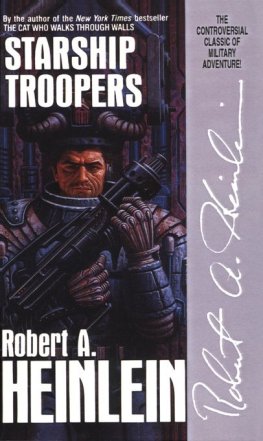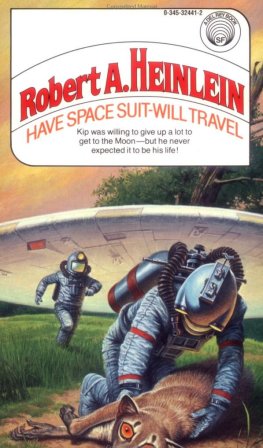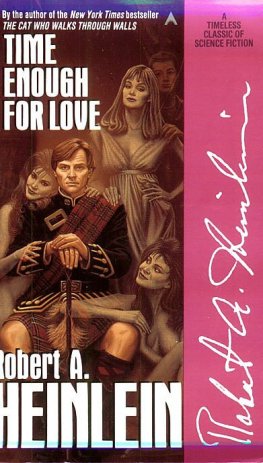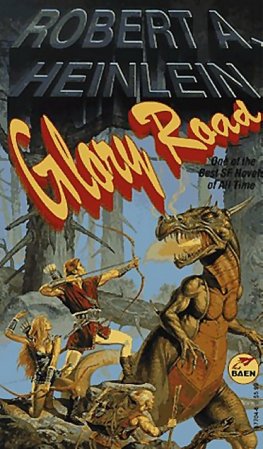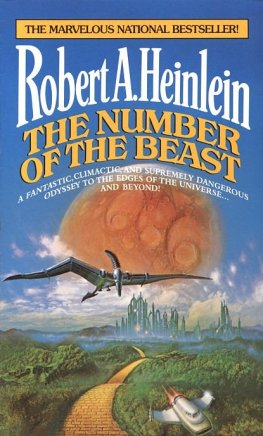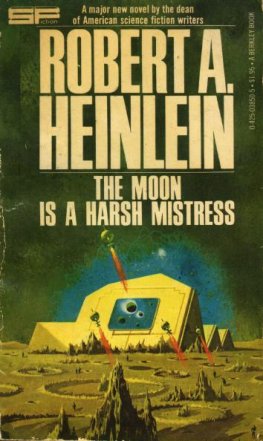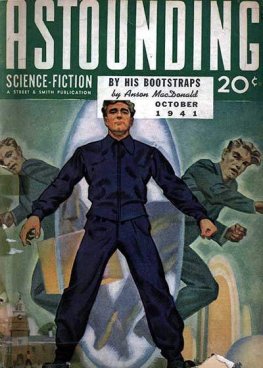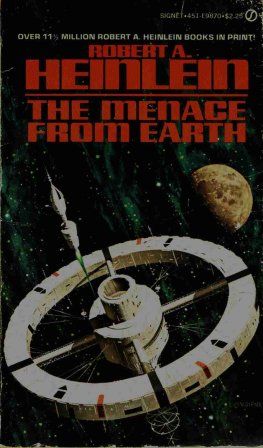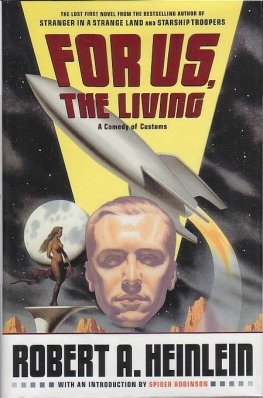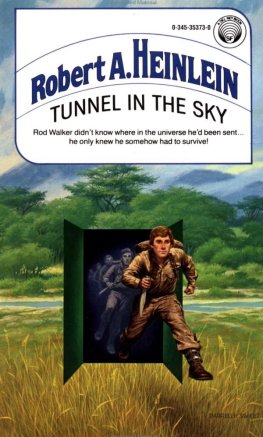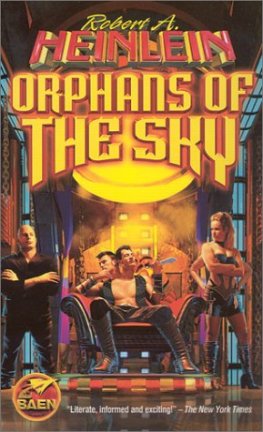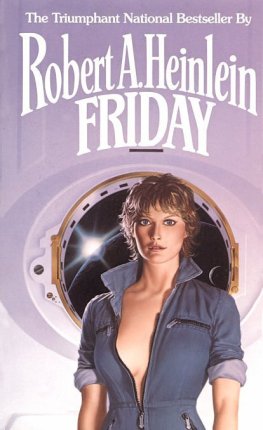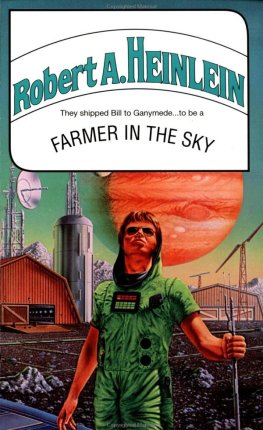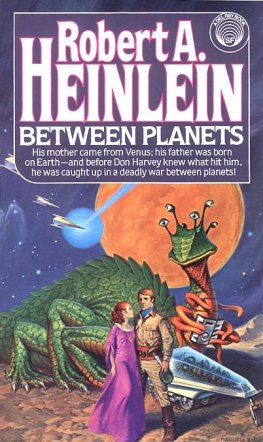Robert Heinlein - Grumbles From the Grave
Here you can read online Robert Heinlein - Grumbles From the Grave full text of the book (entire story) in english for free. Download pdf and epub, get meaning, cover and reviews about this ebook. genre: Science fiction. Description of the work, (preface) as well as reviews are available. Best literature library LitArk.com created for fans of good reading and offers a wide selection of genres:
Romance novel
Science fiction
Adventure
Detective
Science
History
Home and family
Prose
Art
Politics
Computer
Non-fiction
Religion
Business
Children
Humor
Choose a favorite category and find really read worthwhile books. Enjoy immersion in the world of imagination, feel the emotions of the characters or learn something new for yourself, make an fascinating discovery.

- Book:Grumbles From the Grave
- Author:
- Genre:
- Rating:3 / 5
- Favourites:Add to favourites
- Your mark:
- 60
- 1
- 2
- 3
- 4
- 5
Grumbles From the Grave: summary, description and annotation
We offer to read an annotation, description, summary or preface (depends on what the author of the book "Grumbles From the Grave" wrote himself). If you haven't found the necessary information about the book — write in the comments, we will try to find it.
Grumbles From the Grave — read online for free the complete book (whole text) full work
Below is the text of the book, divided by pages. System saving the place of the last page read, allows you to conveniently read the book "Grumbles From the Grave" online for free, without having to search again every time where you left off. Put a bookmark, and you can go to the page where you finished reading at any time.
Font size:
Interval:
Bookmark:
Robert A. Heinlein
Grumbles From the Grave
Edited by Virginia Heinlein
For Heinlein's Children
FOREWORD
This book does not contain the polished prose one normally associates with the Heinlein stories and articles of later years. It has been taken from the day-to-day correspondence between the author and his agent, and from letters from several others, many of which have been excerpted.
Such cutting eliminates a great deal of tedious back-and-forth correspondence concerning details of contracts, discussions about royalty rates, and other items which would hold up the flow of information about the writing business (and other things). This book has been abstracted from enormous files, which run millions of words long, much of it boring to those not concerned with the daily business of writing and selling.
Many people have asked me to consider writing Robert's biography, or a joint one-his and mine-but I am not ready to do that yet. Perhaps, one day.
Meanwhile, this correspondence covers mostly the years from the time when Robert first began writing until the period 1969-1970, at which time he found that his writing time was effectively cut down to zero by the continuing details of his business and subsequently, grave illness...Over the years, I had taken over record keeping, information on sales, taxes, and some of the correspondence. In 1970, Robert was very sick for the entire year, and it was then essential that I keep the business running. It was fortunate that I had begun doing so the previous year.
In order to follow the various subjects, I have excerpted these letters to put together as many as possible of the remarks and ideas on those subjects. Each letter did have a number of topics in it, these have been separated where possible. Some of the topics are: juveniles, adult novels, publishers, travel, fan mail, time wasters, Robert's writing methods, and so forth.
Some names have been left out for legal reasons.
There are places where there are only notes on telephone conversations. It wpuld be impossible to reconstruct those. They have been omitted.
There are a few sparse excerpts from letters which were written after I took over running the business end of Robert's writing...most of those letters written by Robert. He talked to Lurton Blassingame, his agent, now and then, but mostly he spent his time reading for his work, or writing. During the last eighteen years of his life, he had many illnesses. But, in between, he continued working.
I was his "first reader" -- the person who read each work first and made suggestions for cutting, revisions, and so on. It was a great responsibility. When Robert came down with peritonitis in 1970, / Will Fear No Evil needed more cutting, but it was obvious that he was (and would be for a long time) in no condition to do that. And his publisher was calling for the manuscript, so I had it Xeroxed and sent it in. I take full responsibility for that. With further cutting, it might perhaps have been a better story. In spite of this, it has sold more than a million copies in U.S. paperback alone, and has been translated into more than half-a-dozen languages, and is still in print in all of those, including English.
At one time, Robert wrote to his agent about the possibility of writing a memoir-autobiography: Grumbles From The Grave by Robert A. Heinlein (deceased).
This is that book. It covers many years, many subjects, and some personal comments-taken mostly from letters between Robert and his agent, Lurton Blassingame.
Virginia Heinlein Carmel, California 1988
* * *A SHORT BIOGRAPHY OF
ROBERT A. HEINLEIN BY
VIRGINIA HEINLEIN
Robert Anson Heinlein was born July 7, 1907, the third of seven children of Bam Lyle Heinlein and Rex Ivar Heinlein, in Butler, Missouri. The growing family moved to Kansas City during his childhood.
When Robert learned to read, he read everything he could lay his hands on. He did, in fact, read on his way to school, going along the street, up and down curbs, up to the schoolhouse. He attended junior high school, Central High School in Kansas City, arid spent one year at a local junior college. His next older brother had gone before him to the United States Naval Academy, and Robert set his sights on going there. He collected many letters of recommendation from people and gained the appointment from Senator James Reed to enter the Naval Academy in 1925.
Following his graduation and commissioning in 1929, he served aboard the Lexington under Captain E. J. King, who later became commander in chief of the U.S. Navy during World War II. When his tour of duty on the Lexington was about to end, Captain King asked that he be retained as a gunnery specialist. However, Robert was given duty as gunnery officer on the Roper, a destroyer. xiii
Destroyer duty was difficult because of the rolling of the ship, and seasickness was a way of life for him. He lost weight and came down with tuberculosis. After he was cured, the Navy retired him from active duty.
At twenty-seven years of age, he found himself permanently ashore, with a small pension. It was necessary for him to find some way to augment that money. He tried silver mining, politics, selling real estate, and further study in engineering. One day, he found an ad in a science fiction magazine for a contest. So he sat down and wrote a story ("Life-Line"). He felt it was too good for the magazine he had written it for, so he sent it to the top magazine in the field-Astounding Science Fiction. John W. Campbell, Jr. bought the story,
The next several stories he wrote were less salable, and it was only on his fifth or sixth try that Campbell again purchased one. The second and following stories eventually sold, but Robert was hooked for life on writing. Originally, his purpose in writing was to pay off a mortgage on a house which he and his wife of a few years had purchased. After that mortgage was paid off, he found that when he tried to give up writing, he felt vaguely uncomfortable, and it was only when he returned to his typewriter that he felt fulfilled.
During World War II, Robert left his writing to do engineering work for the U.S. Navy. For three years he did such work in Philadelphia. The war over, he returned to his writing. By this time, he was looking for wider horizons. He was persuaded to begin the juvenile line, and he sold stories to the Saturday Evening Post. His second juvenile was picked up by television, in a series that ran for five years. He also wrote the classic film, Destination Moon, and he began to think about writing serious adult novels to open up that market to science fiction.
Robert thought that the possibilities of mankind going into space were sufficiently important and feasible that before he left Philadelphia, he wrote two letters urging that the Navy begin space exploration. One letter went through channels as far as the head of the Philadelphia Naval Air Experimental Station, who killed the proposal. The second went (also through channels), via a friend, through Naval Operations, and got as far as a Cabinet meeting. It was reported that then-President Truman took it seriously enough to ask whether such a rocket could be launched from the deck of a ship. No, the President was told. And that killed the project. In 1947 Robert was divorced from his wife, and when he received his decree nisi, he married me. During World War II, I had gone into the Navy, as a WAVE, and my second tour of duty was in Philadelphia, where I met Robert; we worked in the same section.
One day Robert spent hours searching for some tear sheets for an anthology. In an effort to help, I decided that his files needed to be organized. So I set about that, setting up a system which I still use today. This began my involvement in the literary business.
By the time Robert found himself too busy to do more than overhead work (keeping up correspondence with his agents, keeping records, answering fan mail, and all the other chores attendant on being a literary figure), I was well enough acquainted with his business that I could take over those chores for him. We worked together as a team, discussing what to do about offers, and I would answer the letters for him.
Font size:
Interval:
Bookmark:
Similar books «Grumbles From the Grave»
Look at similar books to Grumbles From the Grave. We have selected literature similar in name and meaning in the hope of providing readers with more options to find new, interesting, not yet read works.
Discussion, reviews of the book Grumbles From the Grave and just readers' own opinions. Leave your comments, write what you think about the work, its meaning or the main characters. Specify what exactly you liked and what you didn't like, and why you think so.

